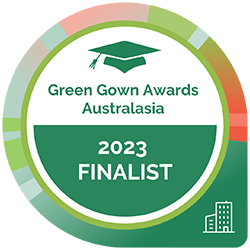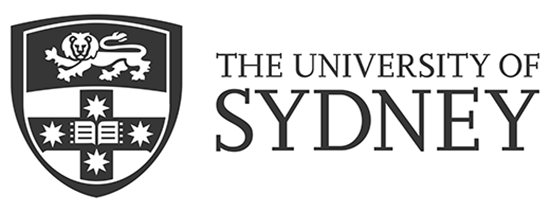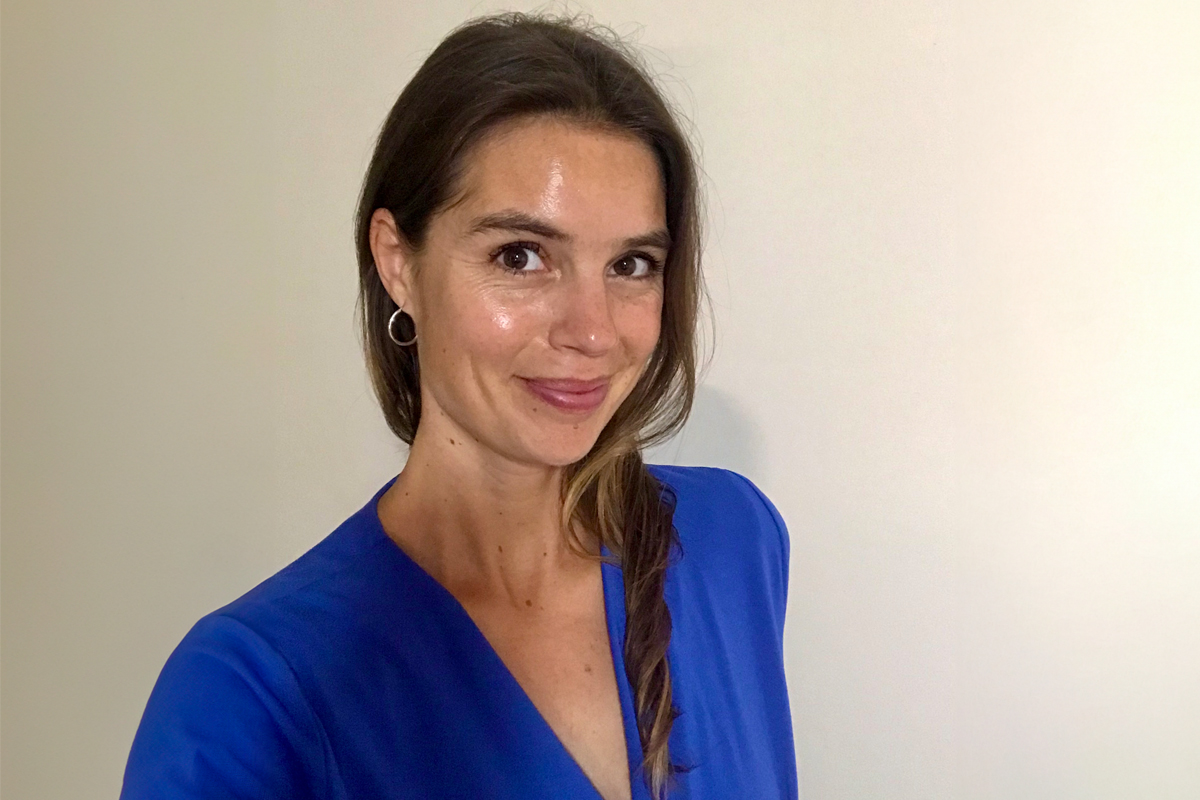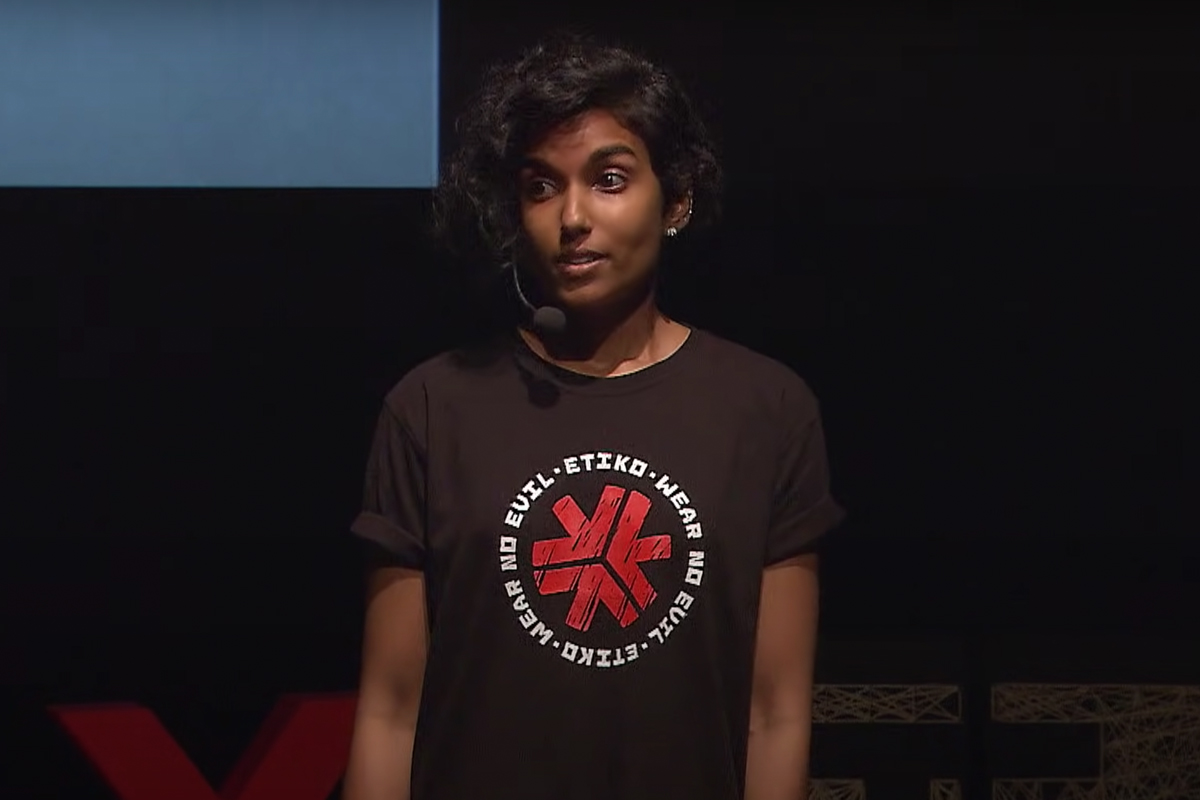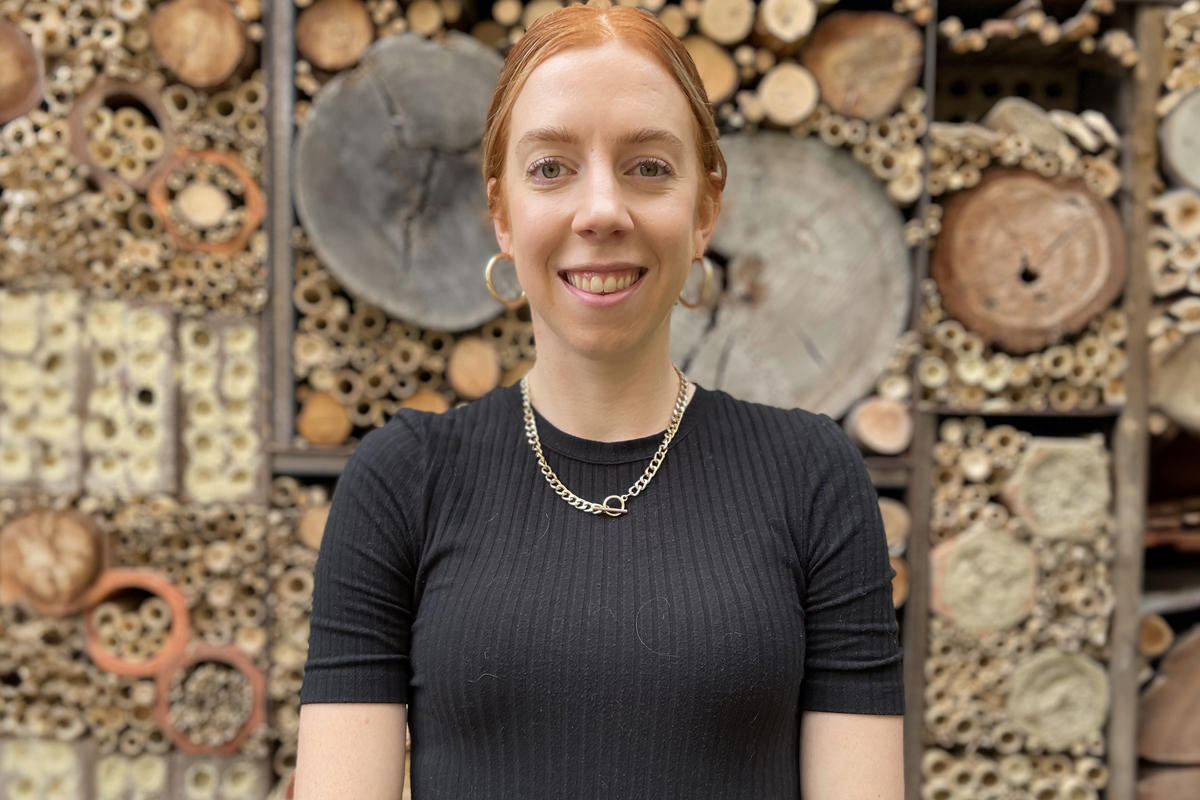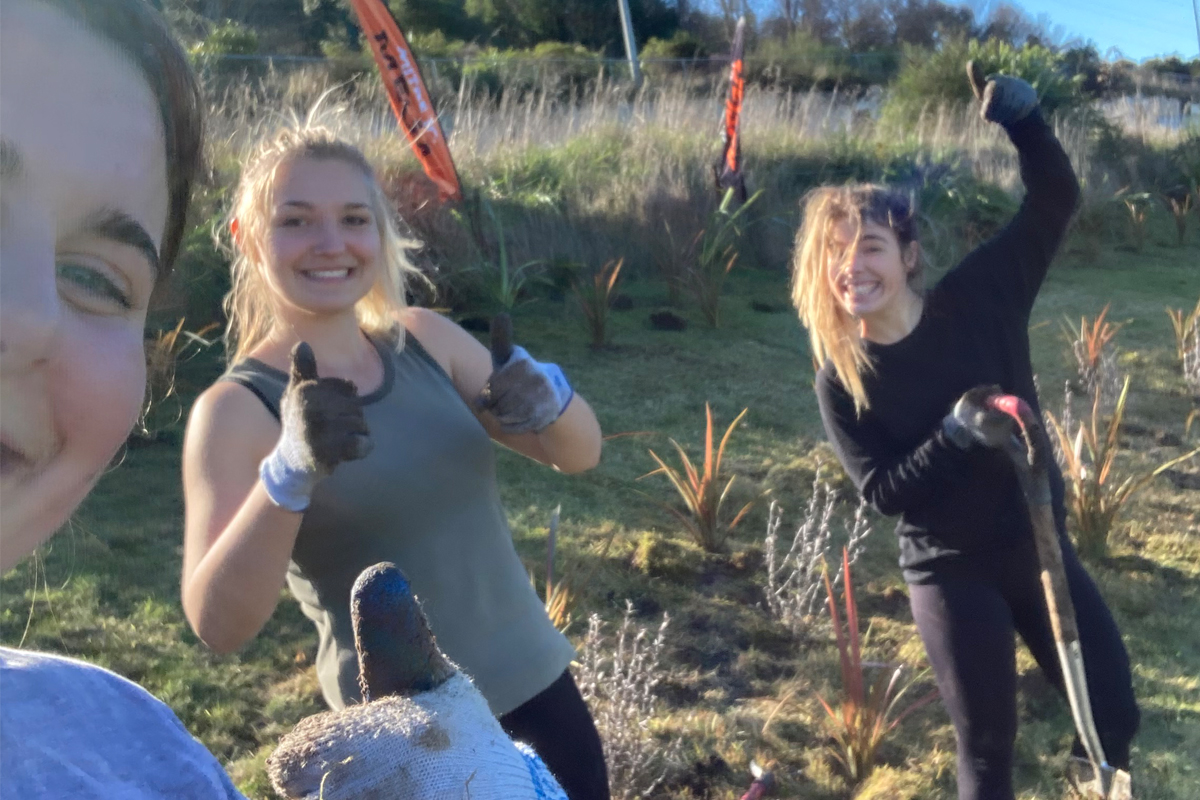Sustainability Champion – Student category
I believe that sustainability is integral in improving our society and global health, and requires interdisciplinary links covering socio-political, economic, and cultural pillars – not just environmental issues. These ideals and values have been instilled in me throughout my formative years in school, thus when I was fortunate to become President of the Northern Clinical School Student Society in my third year of postgraduate medicine (2021) at the University of Sydney, I was eager to use this opportunity to advocate for greater sustainability principles and practices, beyond my own family and community network.
In hindsight, I think that my timing was very lucky. I found myself working with a team of like-minded people, enthusiastic about initiating positive change in our clinical school, University and beyond, including the Northern Sydney Local Health District (NSLHD). I am thankful to Associate Professor Margaret Schnitzler (Head of Northern Clinical School), Karyn Mossman (Manager, Education Support (Clinical) Northern Clinical School) and Monique Gilbert (Clinical Skills Educator) for all their support, guidance, and drive that enabled my team to accomplish many of our goals. As a Student Representative on our monthly Northern Clinical School (NCS) Sustainability Team meetings, we discussed and actioned sustainability projects within our clinical school. These included:
- A single-use plastic free campaign, launched during Plastic-Free July in 2021. This project resulted the elimination of single-use plastics from the catering for events we hosted and, in the student, common room, where glassware and reusable cutlery was used whenever possible.
- National Tree Day – our team promoted the national day and aided installing pot plants around the clinical school to deliver positive social and environmental impacts.
- “Sharing Sustainability” Facebook posts in our student groups – I regularly shared infographics providing helpful tips and interesting insights into sustainability topics ranging from the UN Sustainability Development Goals, Earth Day, Meat-free Mondays, single-use plastics ban, and how to reduce water & electricity consumption at home. Although the idea for these posts was my initiative, the posts themselves would not have been sustainable without my supportive team of students (in the year-below at NCS), whom I encouraged, guided, and supported to continue working in the sustainability field.
- Sustainability Noticeboard in the student common room: posters and updates on current sustainability projects within our LHD.
- Clean-up Australia Day 2022 – I mentored a third-year student in our sustainability team to organise the event for this day. I also assisted with promoting the event and participated on the day to encourage a more positive culture around sustainability amongst our students.
In addition, I was the student representative for our Northern Clinical School on the inaugural Sydney Medical School Sustainability Leadership Group, established in 2021, and continued in this role until my graduation at the end of 2022. This group consisted of students, academic and professional staff representatives across all the clinical schools in the University of Sydney. Our aim was to improve sustainability across the clinical schools, in line with the University’s Sustainability Strategy. Thus, I encouraged our clinical schools to participate in the Green Impact competition, first launched at the University of Sydney in 2021. It was wonderful to see the improvements we all made over the past couple of years through engaging in Green Impact. Our Northern Clinical School Green Impact team won the Sustainability Director’s Award in 2022, and I was grateful to also be granted the Student Champion Award in 2022. Some of our initiatives were described above, but also included mentoring other teams to improve their sustainability actions and set goals as well.
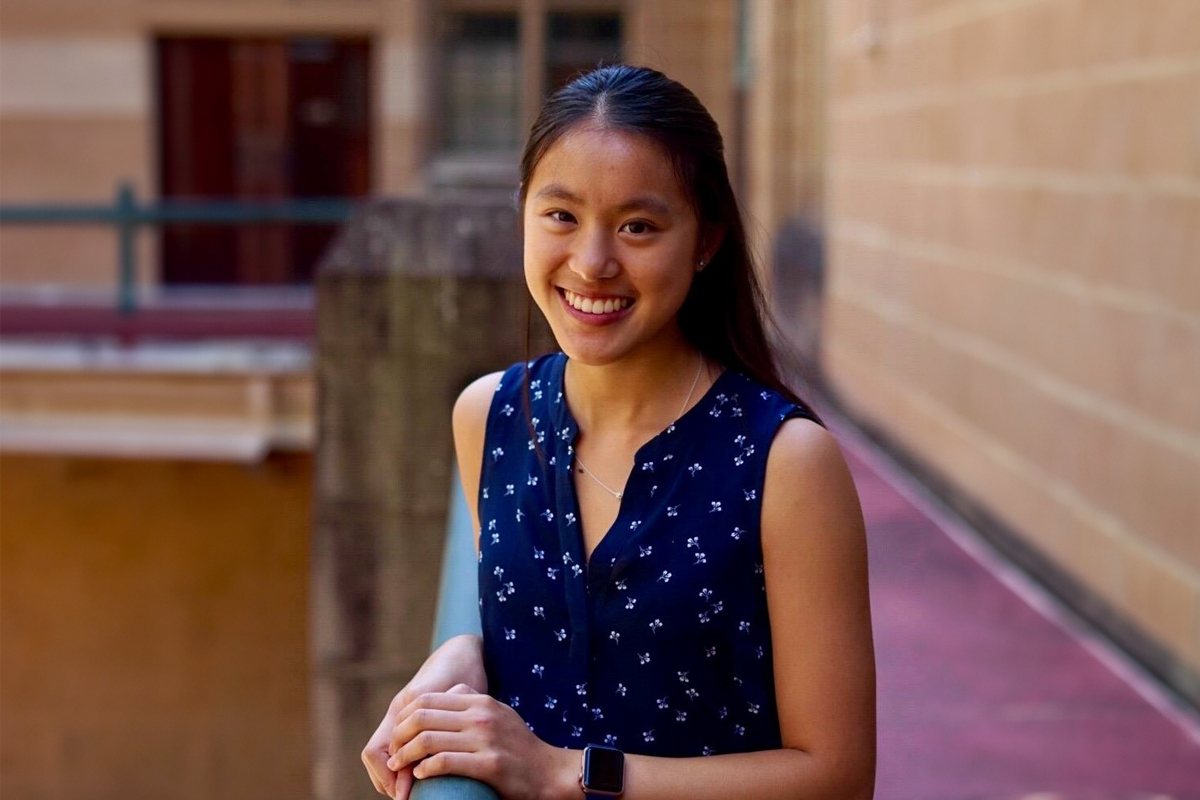
Impact and benefits
As a student representative, I was excited to be involved in improving sustainability actions at a local clinical school, University, and local health district levels.
At a local clinical school level, my role consisted of promoting sustainability to encourage students and staff to consider sustainable practices as part of our everyday and working day lives. Some of our Northern Clinical School initiatives are described above.
When I was on a regional placement at Lismore Base Hospital during my final year of medical school, I delivered a presentation on Sustainability in Healthcare during a Multidisciplinary Education Day at the University Centre for Rural Health. The audience consisted of medical and allied health students and staff from various universities. The timing of the presentation was pertinent because it was a couple of months after the devastating floods in Lismore, but also a few months prior to the carbon footprint assessment of Lismore Base Hospital, which would be used as a model for other regional hospitals with NSW Health. Although many students are aware of the negative impacts of climate change, not many know the current projects and steps being undertaken to reduce the carbon footprint within NSW Health.
At a University level, I was a student representative Sydney Medical School Sustainability Leadership Group. With the generous support of the Faculty of Medicine and Health, I and several other students completed the Carbon Footprint for Healthcare course, run by the UK Centre for Sustainable Healthcare. I used the knowledge and skills from this course to guide my sustainability actions and provide evidence towards the courses of action that we should aim towards. Besides encouraging all clinical schools to participate in the Green Impact challenge, I was involved in updating the curriculum for first- and second-year medical students to embed sustainability themes within their regular team-based learning sessions. I helped to create new learning content, including videos and PowerPoint slides. This way, students learn from the outset to consider sustainability principles when initiating clinical management.
Due to the proximity and close working relationship between the Northern Clinical School and the Northern Sydney Local Health District (NSLHD), as our university building is located on the Royal North Shore Hospital (RNSH) site, I was fortunate to be a student representative on the NSLHD Planetary Health Committee and the Net Zero Clinical Groups. We were lucky to have Dr Kate Charlesworth as our Medical Consultant, Planetary Health NSLHD at the time, to guide our NSLHD Target of Net Zero Carbon Emissions by 2035. Thus, I was able to act as a liaison between the students, clinical school staff, and hospital executive regarding discussions on sustainability issues. When the Net Zero Clinical Group was formed and new sustainability projects were being considered, I helped put the senior clinical staff in contact with the junior doctor’s group to enable more people to get involved with sustainability initiatives. Soon, this opportunity to be involved in sustainability research projects will also be opened to current medical students as part of their MD research project.
Thanks to the inspiration from Nepean Clinical School, our Northern Clinical School partnered with NSLHD to support a MedEarth Donation and Sorting event. MedEarth is a not-for-profit organisation that collects unused expired medical supplies and re-distributes them to communities in need. In September-October 2022, we collected several boxes of unused expired medical supplies from 6x departments in RNSH (including operating theatres, emergency department, cancer centre and other wards). These items were thus included in MedEarth shipments to Tonga, Nigeria, Burundi, Zambia, Ukraine, and Uganda – saving approx. 92kg of valuable medical supplies from landfill, whilst assisting under-resourced communities. Leftover medical supplies from our MedEarth Donation event were subsequently either donated to Taronga Zoo for veterinary use or used for student education within the clinical school. Special thanks to Monique Gilbert, our Clinical Skills Educator, for her support and guidance with this project. Overall, this MedEarth project highlighted the significant waste issue in healthcare and hopefully served as a catalyst for further discussions regarding sustainable stock ordering practices and reconsideration of waste management options.
Since graduating from the University of Sydney at the end of 2022, I have since started medical internship at Gosford Hospital, Central Coast LHD. Thus, I could use the experience and knowledge gained from my time with the NSLHD Planetary Health Committee to inform my role as the “Scrubs for Shrubs” (Environmental) Officer on the Central Coast Resident Medical Officers Association (CCRMOA). I hope to work together with our CCLHD Sustainability Officer and Executive Sponsor for Sustainability to support the establishment of appropriate governance structures to guide sustainability targets and practices within the LHD. In addition, I aim to continue being involved with student education and promote sustainability practices to the next generation of healthcare professionals. I remain open to collaborating with others and hope to continue empowering junior students to undertake pathways towards improve sustainability too.
Leadership and engagement
Due to my experience as a current student and leadership roles that enabled me to work closely with clinical and professional University staff, I was able to bring unique perspectives and enthusiasm to discussions on sustainability at multiple levels. Whilst I am always passionate about improving sustainability, I also acknowledge the practical limitations of certain ideas, especially when implementation requires significant student and/or public involvement. Thus, I actively worked together with relevant stakeholders to ensure that sustainability initiatives implemented within our clinical school, university and LHD would be sustainable themselves. Refining sustainability practices is an ongoing iterative process, however, having a holistic perspective and a positive attitude have significantly helped me connect with my peers and senior staff. Thus, no matter the setting, whether it is at a local, clinical, or district-wide level, when we work as a cohesive team, our collective contributions have a much greater impact in improving sustainability within our network and beyond.
Wider societal impact
The healthcare system was estimated to contribute 7% of Australia’s greenhouse gas emissions in 2014-15, equivalent to 35,772 kilotonnes CO2 equivalent emissions.1 There are significant steps to work towards a net zero healthcare system, however, I hope that my contributions in student leadership, JMO advocacy and education will assist our teams in improving sustainability across our networks.
Although I use my values and experience in sustainability to improve my scope of practice, due to the interconnected nature of our economy and supply chain, I hope that by improving sustainability in healthcare we will also be able to stimulate progressive change in other industries and aspects of our daily lives as well.
1. Malik A, Lenzen M, McAlister S, McGain F (2018). The carbon footprint of Australian health care. The Lancet Planetary Health 2: e27-e35
![[TBA]](https://ggaa.acts.asn.au/wp-content/uploads/sites/4/2023/08/GGAA23_17_Student_USYD_Jacinta_Wong_Image3.jpg)
Related finalists
Sustainability Champion – Student/Winners
Sustainability Champion – Student/Winners
Sustainability Champion – Student/Winners
Sustainability Champion – Student/Winners
Sustainability Champion – Student
Sustainability Champion – Student
Sustainability Champion – Student/Winners
Sustainability Champion – Student/Winners
Sustainability Champion – Student
Sustainability Champion – Student
Other finalists
Climate Action
Climate Action
Sustainability Champion – Staff/Winners
Sustainability Champion – Staff/Winners
Student Engagement
Student Engagement
Creating Impact
Creating Impact
Sustainability Champion – Staff/Winners
Sustainability Champion – Staff/Winners
Sustainability Champion – Student
Sustainability Champion – Student
I believe that sustainability is integral in improving our society and global health, and requires interdisciplinary links covering socio-political, economic, and cultural pillars – not just environmental issues. These ideals and values have been instilled in me throughout my formative years in school, thus when I was fortunate to become President of the Northern Clinical School Student Society in my third year of postgraduate medicine (2021) at the University of Sydney, I was eager to use this opportunity to advocate for greater sustainability principles and practices, beyond my own family and community network.
In hindsight, I think that my timing was very lucky. I found myself working with a team of like-minded people, enthusiastic about initiating positive change in our clinical school, University and beyond, including the Northern Sydney Local Health District (NSLHD). I am thankful to Associate Professor Margaret Schnitzler (Head of Northern Clinical School), Karyn Mossman (Manager, Education Support (Clinical) Northern Clinical School) and Monique Gilbert (Clinical Skills Educator) for all their support, guidance, and drive that enabled my team to accomplish many of our goals. As a Student Representative on our monthly Northern Clinical School (NCS) Sustainability Team meetings, we discussed and actioned sustainability projects within our clinical school. These included:
- A single-use plastic free campaign, launched during Plastic-Free July in 2021. This project resulted the elimination of single-use plastics from the catering for events we hosted and, in the student, common room, where glassware and reusable cutlery was used whenever possible.
- National Tree Day – our team promoted the national day and aided installing pot plants around the clinical school to deliver positive social and environmental impacts.
- “Sharing Sustainability” Facebook posts in our student groups – I regularly shared infographics providing helpful tips and interesting insights into sustainability topics ranging from the UN Sustainability Development Goals, Earth Day, Meat-free Mondays, single-use plastics ban, and how to reduce water & electricity consumption at home. Although the idea for these posts was my initiative, the posts themselves would not have been sustainable without my supportive team of students (in the year-below at NCS), whom I encouraged, guided, and supported to continue working in the sustainability field.
- Sustainability Noticeboard in the student common room: posters and updates on current sustainability projects within our LHD.
- Clean-up Australia Day 2022 – I mentored a third-year student in our sustainability team to organise the event for this day. I also assisted with promoting the event and participated on the day to encourage a more positive culture around sustainability amongst our students.
In addition, I was the student representative for our Northern Clinical School on the inaugural Sydney Medical School Sustainability Leadership Group, established in 2021, and continued in this role until my graduation at the end of 2022. This group consisted of students, academic and professional staff representatives across all the clinical schools in the University of Sydney. Our aim was to improve sustainability across the clinical schools, in line with the University’s Sustainability Strategy. Thus, I encouraged our clinical schools to participate in the Green Impact competition, first launched at the University of Sydney in 2021. It was wonderful to see the improvements we all made over the past couple of years through engaging in Green Impact. Our Northern Clinical School Green Impact team won the Sustainability Director’s Award in 2022, and I was grateful to also be granted the Student Champion Award in 2022. Some of our initiatives were described above, but also included mentoring other teams to improve their sustainability actions and set goals as well.

Impact and benefits
As a student representative, I was excited to be involved in improving sustainability actions at a local clinical school, University, and local health district levels.
At a local clinical school level, my role consisted of promoting sustainability to encourage students and staff to consider sustainable practices as part of our everyday and working day lives. Some of our Northern Clinical School initiatives are described above.
When I was on a regional placement at Lismore Base Hospital during my final year of medical school, I delivered a presentation on Sustainability in Healthcare during a Multidisciplinary Education Day at the University Centre for Rural Health. The audience consisted of medical and allied health students and staff from various universities. The timing of the presentation was pertinent because it was a couple of months after the devastating floods in Lismore, but also a few months prior to the carbon footprint assessment of Lismore Base Hospital, which would be used as a model for other regional hospitals with NSW Health. Although many students are aware of the negative impacts of climate change, not many know the current projects and steps being undertaken to reduce the carbon footprint within NSW Health.
At a University level, I was a student representative Sydney Medical School Sustainability Leadership Group. With the generous support of the Faculty of Medicine and Health, I and several other students completed the Carbon Footprint for Healthcare course, run by the UK Centre for Sustainable Healthcare. I used the knowledge and skills from this course to guide my sustainability actions and provide evidence towards the courses of action that we should aim towards. Besides encouraging all clinical schools to participate in the Green Impact challenge, I was involved in updating the curriculum for first- and second-year medical students to embed sustainability themes within their regular team-based learning sessions. I helped to create new learning content, including videos and PowerPoint slides. This way, students learn from the outset to consider sustainability principles when initiating clinical management.
Due to the proximity and close working relationship between the Northern Clinical School and the Northern Sydney Local Health District (NSLHD), as our university building is located on the Royal North Shore Hospital (RNSH) site, I was fortunate to be a student representative on the NSLHD Planetary Health Committee and the Net Zero Clinical Groups. We were lucky to have Dr Kate Charlesworth as our Medical Consultant, Planetary Health NSLHD at the time, to guide our NSLHD Target of Net Zero Carbon Emissions by 2035. Thus, I was able to act as a liaison between the students, clinical school staff, and hospital executive regarding discussions on sustainability issues. When the Net Zero Clinical Group was formed and new sustainability projects were being considered, I helped put the senior clinical staff in contact with the junior doctor’s group to enable more people to get involved with sustainability initiatives. Soon, this opportunity to be involved in sustainability research projects will also be opened to current medical students as part of their MD research project.
Thanks to the inspiration from Nepean Clinical School, our Northern Clinical School partnered with NSLHD to support a MedEarth Donation and Sorting event. MedEarth is a not-for-profit organisation that collects unused expired medical supplies and re-distributes them to communities in need. In September-October 2022, we collected several boxes of unused expired medical supplies from 6x departments in RNSH (including operating theatres, emergency department, cancer centre and other wards). These items were thus included in MedEarth shipments to Tonga, Nigeria, Burundi, Zambia, Ukraine, and Uganda – saving approx. 92kg of valuable medical supplies from landfill, whilst assisting under-resourced communities. Leftover medical supplies from our MedEarth Donation event were subsequently either donated to Taronga Zoo for veterinary use or used for student education within the clinical school. Special thanks to Monique Gilbert, our Clinical Skills Educator, for her support and guidance with this project. Overall, this MedEarth project highlighted the significant waste issue in healthcare and hopefully served as a catalyst for further discussions regarding sustainable stock ordering practices and reconsideration of waste management options.
Since graduating from the University of Sydney at the end of 2022, I have since started medical internship at Gosford Hospital, Central Coast LHD. Thus, I could use the experience and knowledge gained from my time with the NSLHD Planetary Health Committee to inform my role as the “Scrubs for Shrubs” (Environmental) Officer on the Central Coast Resident Medical Officers Association (CCRMOA). I hope to work together with our CCLHD Sustainability Officer and Executive Sponsor for Sustainability to support the establishment of appropriate governance structures to guide sustainability targets and practices within the LHD. In addition, I aim to continue being involved with student education and promote sustainability practices to the next generation of healthcare professionals. I remain open to collaborating with others and hope to continue empowering junior students to undertake pathways towards improve sustainability too.
Leadership and engagement
Due to my experience as a current student and leadership roles that enabled me to work closely with clinical and professional University staff, I was able to bring unique perspectives and enthusiasm to discussions on sustainability at multiple levels. Whilst I am always passionate about improving sustainability, I also acknowledge the practical limitations of certain ideas, especially when implementation requires significant student and/or public involvement. Thus, I actively worked together with relevant stakeholders to ensure that sustainability initiatives implemented within our clinical school, university and LHD would be sustainable themselves. Refining sustainability practices is an ongoing iterative process, however, having a holistic perspective and a positive attitude have significantly helped me connect with my peers and senior staff. Thus, no matter the setting, whether it is at a local, clinical, or district-wide level, when we work as a cohesive team, our collective contributions have a much greater impact in improving sustainability within our network and beyond.
Wider societal impact
The healthcare system was estimated to contribute 7% of Australia’s greenhouse gas emissions in 2014-15, equivalent to 35,772 kilotonnes CO2 equivalent emissions.1 There are significant steps to work towards a net zero healthcare system, however, I hope that my contributions in student leadership, JMO advocacy and education will assist our teams in improving sustainability across our networks.
Although I use my values and experience in sustainability to improve my scope of practice, due to the interconnected nature of our economy and supply chain, I hope that by improving sustainability in healthcare we will also be able to stimulate progressive change in other industries and aspects of our daily lives as well.
1. Malik A, Lenzen M, McAlister S, McGain F (2018). The carbon footprint of Australian health care. The Lancet Planetary Health 2: e27-e35
![[TBA]](https://ggaa.acts.asn.au/wp-content/uploads/sites/4/2023/08/GGAA23_17_Student_USYD_Jacinta_Wong_Image3.jpg)
Related finalists
Sustainability Champion – Student
Sustainability Champion – Student
Sustainability Champion – Student/Winners
Sustainability Champion – Student/Winners
Sustainability Champion – Student
Sustainability Champion – Student
Other finalists
Climate Action
Climate Action
Sustainability Champion – Staff/Winners
Sustainability Champion – Staff/Winners
Student Engagement
Student Engagement

